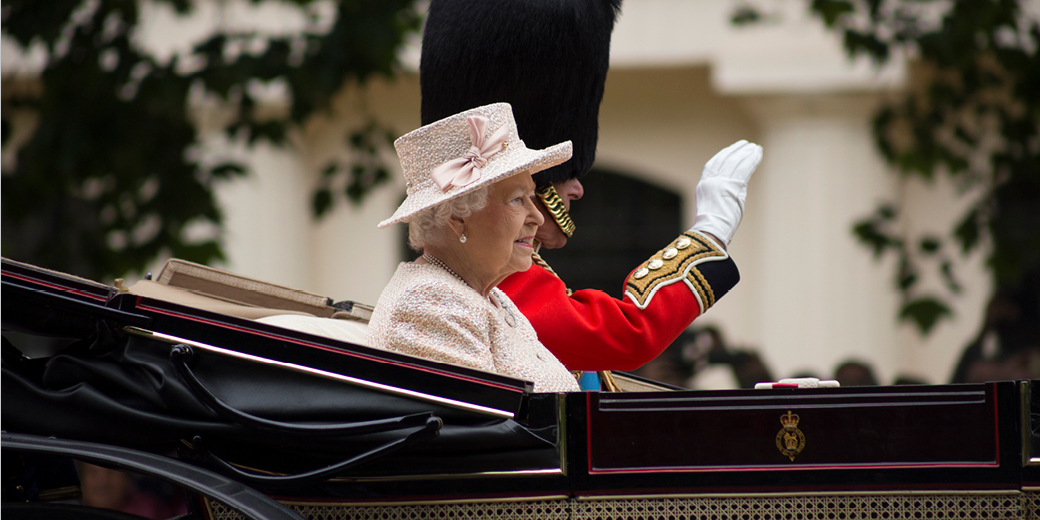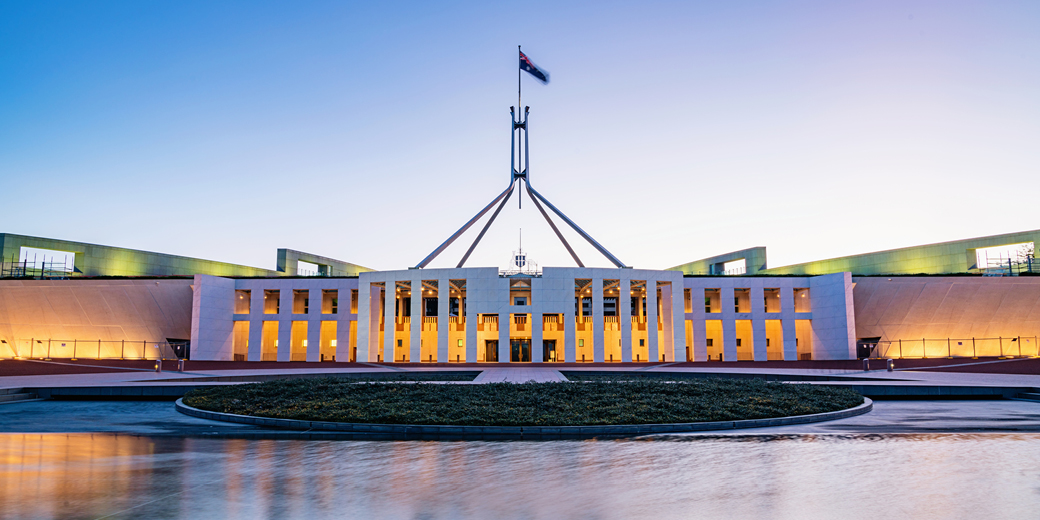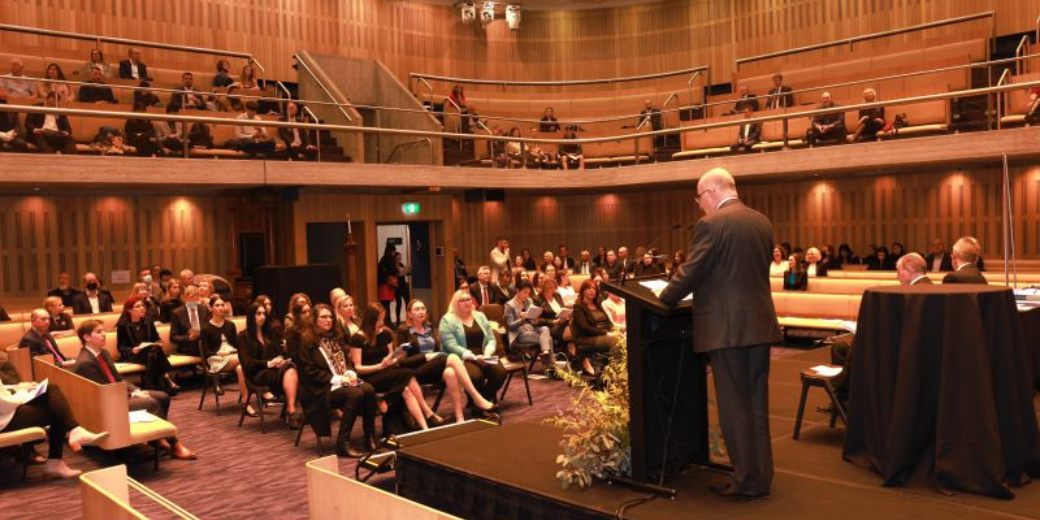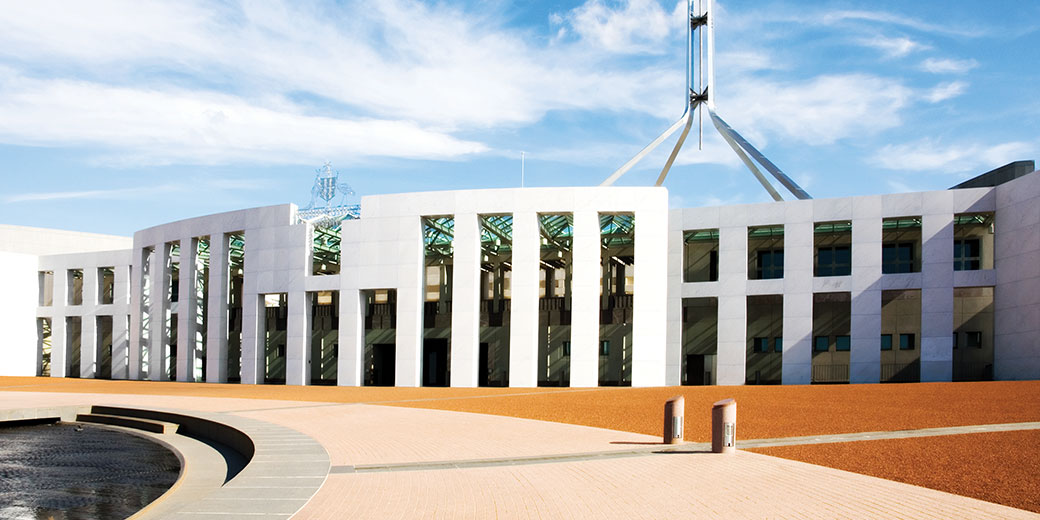While the accession of King Charles lll will be marked by obvious visual change, such as his likeness added to new Australian coins next year and on $5 notes in the future, in some ways the death of Queen Elizabeth ll will be less impactful that one might expect.
“For such a monumental event, the change upon the law and the profession is somewhat negligible,” Adrian Deans, College of Law Academic Policy & Quality, explains. “For example, Acts of Parliament tend to refer to The Crown rather than a specific monarch.”
Below are some of the legal and procedural ramifications of the Queen’s death that will filter through to our daily lives.
Court procedures
The way in which a criminal case is initiated in court will now change if brought forward in the name of the monarch rather than the Crown. “Cases will now be styled ‘The King v X’, although the abbreviation of the royal cypher ‘R v X’ won’t change,” Lewis Patrick, College of Law Chief Academic Officer, explains.
The abbreviation ‘R’ in the styling of criminal cases in NSW remains but now stands for Rex, the Latin word for King, rather than Regina. The practical impact in NSW Courts is that charges and indictments will be presented in the name of ‘His Majesty’ rather than ‘Her Majesty.’
As for the change in title for Australia’s Queen’s Counsels, Deans points out in most jurisdictions Senior Counsel (SC) has become the preferred title and so the impact will be minimal. Queen’s Counsel are appointed by letters patent that continue automatically upon the change of Sovereign, so existing QCs won’t have to do anything other than change their post-nominals to KC.
“There are still some QCs in NSW who are affected by this change,” James Crittenden, Head of Short Courses and CPD, adds, “but since 1993, outstanding senior barristers have been appointed ‘Senior Counsel’ with the post-nominal ‘SC’.”
According to Crittenden, the use of QC is still commonly used in Victoria, Queensland and South Australia, so it will be more noticeable in those jurisdictions. “Most notably, our currently serving Commonwealth Attorney-General Mark Dreyfus automatically became The Hon. Mark Dreyfus KC MP upon the accession of King Charles III.”
Legal documents
While the validity of current Australian passports referencing Her Majesty Queen Elizabeth the Second remain unaffected, new passports will reflect the accession of His Majesty King Charles the Third. Interestingly, when King Charles lll is represented in profile, primarily on currency, his image will face to the left. According to tradition that dates back to the 1600s, each new monarch must alternate the direction of their gaze and Queen Elizabeth ll faced right.
Oath of Allegiance
There is a range of oaths of allegiance and affirmations of allegiance in Australia that require a reference to the monarch of Australia. In some incidences the reference to the crown has been removed, like in the Australian Citizen Affirmation by the Keating Government in 1994, but in others it remains.
When elected, all serving members of parliament are required to make an Oath of Allegiance to the current monarch, King Charles lll. In addition, the Governor General is required to make an Oath of Allegiance and an Oath of Office to King Charles lll.
As Crittenden highlights, unique constitutional arrangements in Victoria required all sitting MPs to immediately swear their allegiance to King Charles III upon his accession to be able to continue their normal duties and for parliament to resume, which they did earlier this week.
“That requirement was not necessary in NSW and other states and territories, with parliamentary business able to proceed in due course following the proclamation of the new Sovereign by the relevant Governor,” Crittenden explains.
All members of the armed forces, including the navy, army and air force, are required to take both an oath and make an affirmation to the monarch King Charles lll.
Product labelling changes
There are many products that Australian consumers purchase each day that bear the royal coat of arms, think Twinings tea and Moet & Chandon champagne. For a product to be able to bear the royal coat of arms the company or individual trader must receive a royal warrant of appointment from the Royal Warrant Holders Association.
Over her reign Queen Elizabeth ll granted 620 warrants, all of which became void upon her death. Hundreds of retailers will have to discontinue using the royal coat of arms and reapply for the privilege.




















































![How to handle Direct Speech after Gan v Xie [2023] NSWCA 163](https://images4.cmp.optimizely.com/assets/Lawyer+Up+direct+speech+in+drafting+NSW+legislation+OCT232.jpg/Zz1hNDU4YzQyMjQzNzkxMWVmYjFlNGY2ODk3ZWMxNzE0Mw==)






































